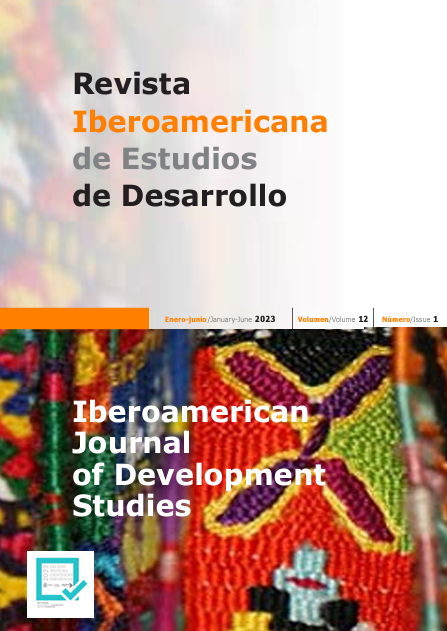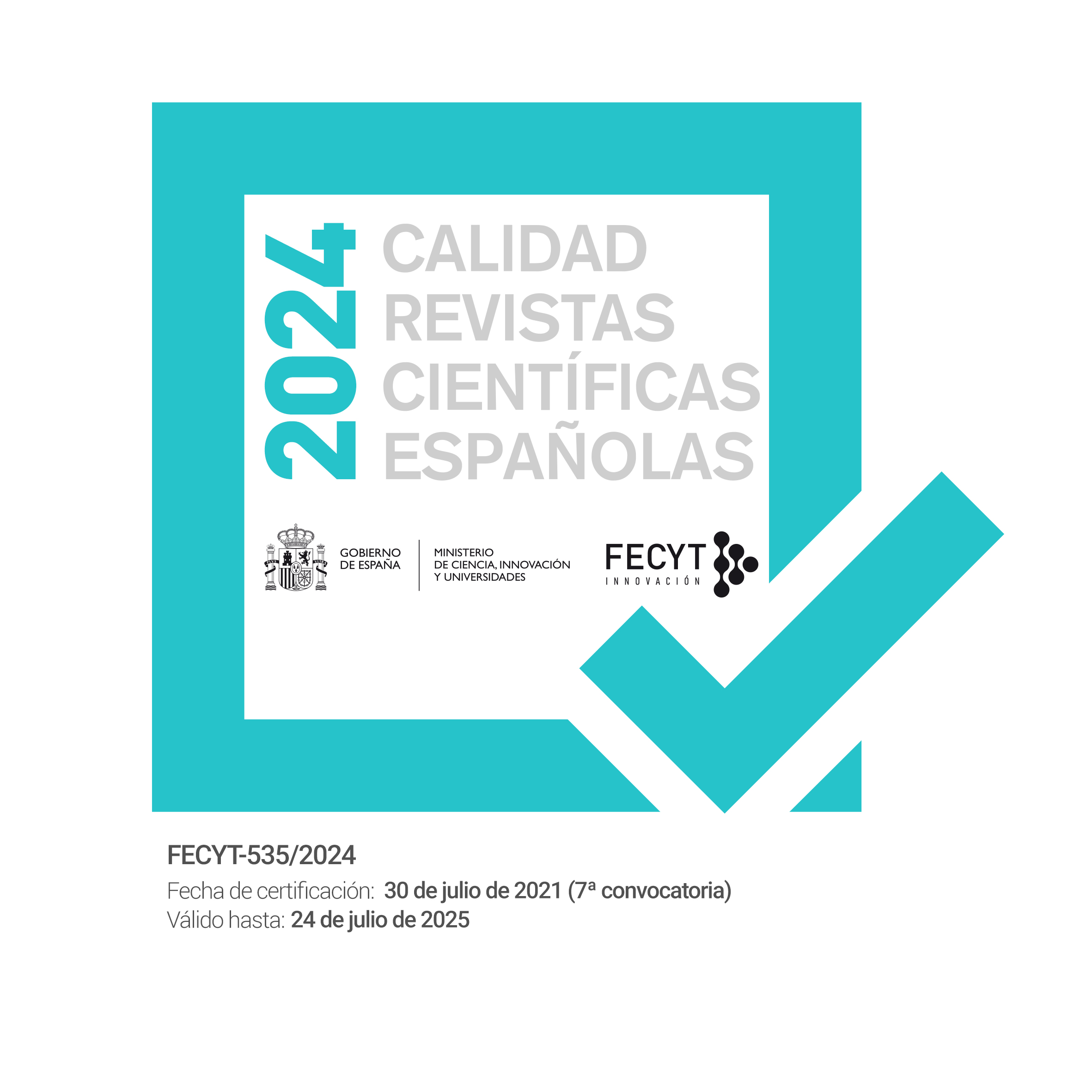Climate change policy implementation in Buenos Aires (2015-2020)
DOI:
https://doi.org/10.26754/ojs_ried/ijds.740Keywords:
climate change, policy implementation, local government, Buenos AiresAbstract
In a world where climate change has been one of the main challenges in the last decades, cities and local governments are key players to mitigate greenhouse gas emissions and adapt to new climate conditions. This article focuses on climate change policy implementation at local level. Using the city of Buenos Aires as a case study, in this research it is aimed to identify which micro- and macro-level factors and the context enable the local government to implement its climate change action plan launched in 2015. To do so, Ryan’s framework is used. The main findings of this paper support the hypothesis tested: Buenos Aires local government had sufficient resources and support from political and social coalitions, as well as the ability to link climate action with local issues to implement the Climate Change Action Plan (2015-2020).
Downloads
References
ADAM A, TSARSITALIDOU S (2019). Environmental policy efficiency: measurement and determinants. Economics of Governance 20:1-22. https://doi.org/10.1007/s10101-018-0219-y , accessed February 17, 2020.
CARMIN J, ROBERTS D, ANGUELOVSKI I (2011). Planning Climate Resilient Cities: Early Lessons from Early Adapters. In: Hoornweg D, Freire M, Lee MJ, Bhada-Tata P, Yuen B. Cities and Climate Change: Responding to an Urgent Agenda, vol. 2. World Bank. https://doi.org/10.1596/978-0-8213-8493-0, accessed February 23, 2020.
CAVALLERO L, GAGO V (2019). Las trampas de la urbanización de la villa 31. Página/12, December 19. https://www.pagina12.com.ar/237306-las-trampas-de-la-urbanizacion-de-la-villa-31, accessed March 28, 2020.
CLARÍN (2018). Saavedra: harán una planta para reciclar basura donde los vecinos quieren una plaza. Clarín, May 4. https://www.clarin.com/ciudades/saavedra-haran-planta-reciclar-basura-vecinos-quieren-plaza_0_HycKiaYTz.html , accessed March 27, 2020.
CLIMATE ACTION TRACKER (2021). Warming Projections Global Update. https://climateactiontracker.org/documents/997/CAT_2021-11-09_Briefing_Global-Update_Glasgow2030CredibilityGap.pdf , accessed November 24, 2021.
CLIMATE WATCH (2022). Climate Watch: Data Explorer. https://www.climatewatchdata.org/data-explorer/historical-emissions?historical-emissions-data-sources=cait&historical-emissions-gases=all-ghg&historical-emissions-regions=All%20Selected&historical-emissions-sectors=total-including-lucf%2Ctotal-including-l, accessed January 15, 2022.
CORFEE-MORLOT J, KAMAL-CHAOUI L, DONOVAN M, COCHRAN I, ROBERT A, TEASDALE P (2010). OECD Environment Working Papers No. 14 Cities, Climate Change & Multilevel Governance. OECD, Paris. https://doi.org/10.1787/220062444715, accessed March 20, 2020.
ENSINCK MG (2017). Fábricas locales de luces LED piden por licitación de alumbrado porteño. El Cronista, May 26. https://www.cronista.com/negocios/Fabricas-locales-de-luces-LED-piden-por-licitacion-de-alumbrado-porteno-20170526-0032.html , accessed March 27, 2020.
FEDERACIÓN ARGENTINA DE CARTONEROS, CARREROS Y RECICLADORES (2016). Federación Argentina de Cartoneros, Carreros y Recicladores: Noticias, July 18. http://faccyr.org.ar/, accessed March 26, 2020.
FRITTAONI V (2018). La Justicia frenó la ley que habilita quemar basura para generar energía y la Ciudad apelará. Clarín, July 2. https://www.clarin.com/ciudades/justicia-freno-ley-habilita-quemar-basura-generar-energia-ciudad-apelara_0_Hkcc7swG7.html , accessed March 27, 2020.
GIAMBARTOLOMEI M (2019a). La ciclovía con estacionamiento paralelo divide a los vecinos de Villa Santa Rita. La Nación, September 19. https://www.lanacion.com.ar/buenos-aires/la-ciclovia-estacionamiento-paralelo-divide-vecinos-villa-nid2287664, accessed March 29, 2020.
GIAMBARTOLOMEI M (2019b). Villa 31: ¿a qué le temen los vecinos beneficiados por la urbanización? La Nación, November 14. https://www.lanacion.com.ar/buenos-aires/villa-31-a-que-le-temen-vecinos-nid2305753, accessed March 29, 2020.
GOBIERNO DE LA CIUDAD DE BUENOS AIRES (2015). Plan de Acción frente al Cambio Climático 2020. Buenos Aires: Agencia de Protección Ambiental. http://cdn2.buenosaires.gob.ar/espaciopublico/apra/pacc_2020.pdf , accessed January 3, 2020.
GOBIERNO DE LA CIUDAD DE BUENOS AIRES (2016). Buenos Aires Ciudad: Hacienda y Finanzas. https://www.buenosaires.gob.ar/hacienda/presupuesto/distribucion-presupuestaria-ano-2016, accessed March 22, 2020.
GOBIERNO DE LA CIUDAD DE BUENOS AIRES (2019). Buenos Aires en números. Dirección General de Estadística y Censos. Ministerio de Economía y Finanzas, Buenos Aires. https://www.estadisticaciudad.gob.ar/eyc/wp-content/uploads/2019/09/2019_06_buenosaires_en_numeros.pdf , accessed March 7, 2020.
GOBIERNO DE LA CIUDAD DE BUENOS AIRES (2020). Gobierno de la Ciudad de Buenos Aires: Estadística y Censos, March 8. https://www.estadisticaciudad.gob.ar/eyc/?page_id=813, accessed March 7, 2020.
HIMSCHOOT P, ARECO MM (ND). Cambio Climático en Buenos Aires, riesgo de desastre y pobreza urbana. Agencia de Protección Ambiental Gobierno de la Ciudad de Buenos Aires, Buenos Aires. https://www.buenosaires.gob.ar/sites/gcaba/files/riesgo_de_desastre_y_pobreza_urbana_2014.pdf, accessed March 14, 2020.
IPCC (2021). Climate Change 2021. The physical science basis. Summary for policymakers. Cambridge University Press. https://www.ipcc.ch/report/ar6/wg1/downloads/report/IPCC_AR6_WGI_SPM_final.pdf , accessed August 31, 2021.
LA NACIÓN (2015). Buenos Aires, entre las 10 ciudades líderes frente al cambio climático. La Nación, September 24. https://www.lanacion.com.ar/buenos-aires/buenos-aires-entre-las-10-ciudades-lideres-frente-al-cambio-climatico-nid1830804, March 24, 2020.
MARKKANEN S, ANGER-KRAAVI A (2019). Social impacts of climate change mitigation policies and their implications for inequality. Climate Policy 19(7):827-844. https://doi.org/10.1080/14693062.2019.1596873, accessed March 7, 2020.
MAUAD AC (2018). Latin American global cities responding to climate change? Examining climate responses from São Paulo, Rio de Janeiro, Mexico City and Buenos Aires from 2005 to 2017. Universidade de Brasília, Brasília (Brasil). http://repositorio.unb.br/handle/10482/34858, accessed October 28, 2019.
MCCARTHY N, WINTERS P, LINARES AM, ESSAM T (2012). Indicators to Assess the Effectiveness of Climate Change Projects. Inter-American Development Bank. https://publications.iadb.org/en/indicators-assess-effectiveness-climate-change-projects , accessed February 16, 2020.
MUSSE V (2019). Reciclado: inauguran una nueva planta para los residuos del norte de la ciudad. La Nación, August 22. https://www.lanacion.com.ar/buenos-aires/reciclado-inauguran-nueva-planta-residuos-del-norte-nid2279871, accessed March 27, 2020.
RYAN D (2012). Desafíos políticos e institucionales de las políticas locales sobre cambio climático: las experiencias de Buenos Aires, México D.F. y San Pablo, august. Policy Brief. Fundación Ambiente y Recursos Naturales. https://doi.org/10.13140/RG.2.2.14120.47368, accessed February 25, 2020.
RYAN D (2015). From commitment to action: a literature review on climate policy implementation at city level. Climatic Change, 131(4), 519-529, August. https://doi.org/10.1007/s10584-015-1402-6, accessed February 25, 2020.
SAMANIEGO J (2009). Cambio climático y desarrollo en América Latina y el Caribe: una reseña. CEPAL, Santiago de Chile: United Nations. https://repositorio.cepal.org/bitstream/handle/11362/3640/1/S2009028_es.pdf , accessed November 30, 2019.
SANCHEZ RODRIGUEZ R (2011). Understanding and Improving Urban Responses to Climate Change. Reflections for an Operational Approach to Adaptation in Low and Middle-Income Countries. In: Hoornweg D, Freire M, Lee MJ, Bhada-Tata P, Yuen B. Cities and the Urgent Challenges of Climate Change. Urban Development Series, vol. 2. World Bank. http://documents.worldbank.org/curated/en/321111468182335037/Cities-and-the-urgent-challenges-of-climate-change-introduction , accessed February 10, 2020.
TODARO M, SMITH S (2015). Economic Development, 12th edition. Pearson.
UNITED NATIONS (2015). The Economics of Climate Change in Latin America and the Caribbean. Paradoxes and Challenges of Sustainable Development. United Nations, Santiago (Chile). https://repositorio.cepal.org/bitstream/handle/11362/37311/4/S1420655_en.pdf , accessed October 4, 2019.
WORLD BANK (2010). World Development Report: Development and Climate Change. Washington. https://openknowledge.worldbank.org/handle/10986/4387, accessed October 18, 2019.
WORLD BANK (2020). World Bank: Projects & Operations. https://projects.worldbank.org/en/projects-operations/projects-home?lang=es , accessed March 21, 2020.
WORLD BANK (2022). The World Bank: Data. October. https://data.worldbank.org/, accessed January 15, 2022.
Downloads
Published
How to Cite
Issue
Section
License
Copyright (c) 2023 Daniela Mariana Yáñez

This work is licensed under a Creative Commons Attribution-NonCommercial-NoDerivatives 4.0 International License.








